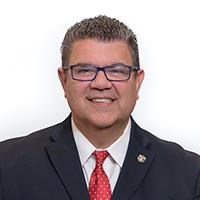RISE’s new seminar on March 23-24 is designed for Medicare beneficiary representatives, plaintiff attorneys, paralegals, legal assistants, payee representatives, and other advocates of Medicare beneficiaries associated with workers compensation, liability, and no-fault insurance claims. The ultimate purpose of the seminar is to provide attendees with an understanding of how to protect Medicare beneficiaries compliantly. We talked to industry expert Rafael Gonzalez, Esq., about the planned sessions and why you don’t want to miss this groundbreaking seminar.
Gonzalez, a partner at Cattie & Gonzalez, PLLC in Charlotte, N.C., and the driving force behind RISE’s annual Medicare Secondary Payer Master Class, Medicare Secondary Payer Conditional Payments Forum, and Medicare Secondary Payer Set-Aside Allocation Symposium, says it’s time to focus on the other side of the coin and present a seminar that addresses what the process looks like for plaintiffs and their representatives.
The virtual seminar, Medicare Secondary Payer Compliance for Beneficiaries, will take place 12 p.m. to 4 p.m. EST., Tuesday and Wednesday, March 23-24. Gonzalez, who is chairing the event, has worked with RISE to line up a dozen attorneys and industry experts on Medicare Secondary Payer for the plaintiff side to address mandatory insurer reporting, conditional payment resolutions, Medicare set-aside allocations, and real-world applications so you can best advocate for beneficiaries.
 Gonzalez, pictured right, says that until now, most conferences have addressed the responsibilities of the payer when settling claims related to auto, liability, no-fault, medical malpractice, and workers compensation. But there is little information available for those who represent the injured individual/Medicare beneficiary.
Gonzalez, pictured right, says that until now, most conferences have addressed the responsibilities of the payer when settling claims related to auto, liability, no-fault, medical malpractice, and workers compensation. But there is little information available for those who represent the injured individual/Medicare beneficiary.
“There really aren’t national organizations focused on offering programming for only the plaintiff and representatives for those types of claims,” he says. And there are definite differences, Gonzalez explains.
The virtual seminar will focus on three major components of Medicare Secondary Payer law: mandatory reporting, conditional payments, and Medicare set-asides (including post-settlement administration).
Mandatory reporting
While at first glance it may seem that reporting of the claim is the responsibility of the payer, Gonzalez says it is important that plaintiffs or their representatives also place a call to Medicare so they can offer their side of the story, including associated injuries and the doctors and hospitals the beneficiary may have seen. “While it may not be mandatory, it’s a good idea,” he said, noting that even if the corporate defendant or its insurer may have reported the claim to Medicare, CMS allows the plaintiff or his or her attorney to put Medicare on notice so the agency can look into it and determine if any of the claims it paid are reimbursable.
“There are two reasons for a beneficiary or his or her representative to call in and report the case. We know it’s mandatory on the payer side, not on the representative side, but there are a lot of benefits to doing so. We are going to address when they should call in, what they should be reporting, what Medicare is looking for, including the description of the accident, the injuries sustained, and the doctors and hospitals the Medicare beneficiary may have seen, and how it differs from the mandatory provisions for payers,” he says.
Conditional payment
The system also works differently than the payer side regarding reimbursement of conditional payments. For example, with workers compensation, the employer and its carrier typically accept responsibility for the work injury and report it to Medicare and therefore will have the responsibility to reimburse payments back to Medicare if necessary. But on the plaintiff side, in liability claims, if the insurance company didn’t take responsibility and never reported the claim, it’s up to the injured individual to report it to Medicare. In that instance, instead of the payer being the debtor, the Medicare beneficiary is considered the debtor and all the activity falls on the plaintiff or the plaintiff’s lawyer to take care of the process.
“Within the process, there are major differences,” Gonzalez says. If you are the responsible payer, Medicare will seek reimbursement prior to settlement and will not reduce such debts. But if you are the beneficiary, Medicare may take into consideration the amount of the settlement and the amount of the bills and will allow the Plaintiff or his/her representative to negotiate for a reduction of the lien or a complete waiver of that lien. “All those tools are available to the plaintiff but are not part of the process on the payer side. So, there are huge differences that we will talk about on the conditional payment side of things,” he says.
During the seminar, speakers will go over how to deal with the Commercial Repayment Center and the Benefits Coordination & Recovery Center to resolve conditional payments in liability, no-fault, and workers compensation claims; pre- and post-settlement options to resolve conditional payments; and best practices for post-demand Medicare conditional payment appeals.
Medicare set-aside allocations
There are also differences in responsibilities between payers and the plaintiff on Medicare set-asides allocations in liability, no-fault, and workers compensation claims, Gonzalez explains.
There is a process in place for payers to send in set-aside allocations to Medicare for its review. Medicare is then able to determine whether the allocated proposed amount appropriately considers Medicare’s future interests. But there is no such process on the liability side, he says. Plaintiffs and their representatives are on their own to do something that takes care of Medicare’s future interests. “Otherwise, the injured individual may be at risk of losing Medicare coverage for those accident-related medical issues in the future,” Gonzalez says.
During the seminar, speakers will offer strategies to make certain Medicare remains a secondary payer post-settlement, options to take Medicare’s future interest into account, and best practices for post-settlement Medicare set-aside administration.
RISE’s virtual seminar, Medicare Secondary Payer Compliance for Beneficiaries, will take place 12 p.m. to 4 p.m. EST on March 23-24. Click here for a detailed look at the agenda and how to register for the program.

